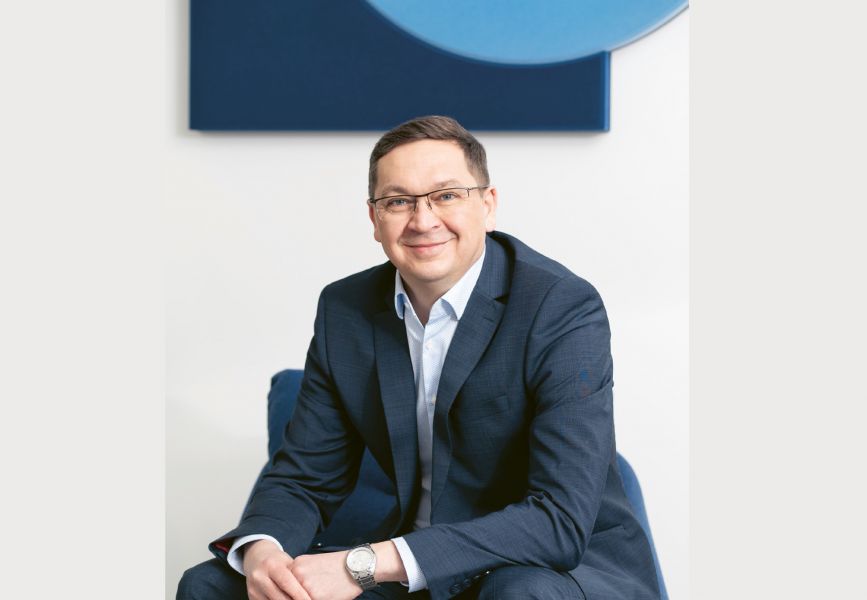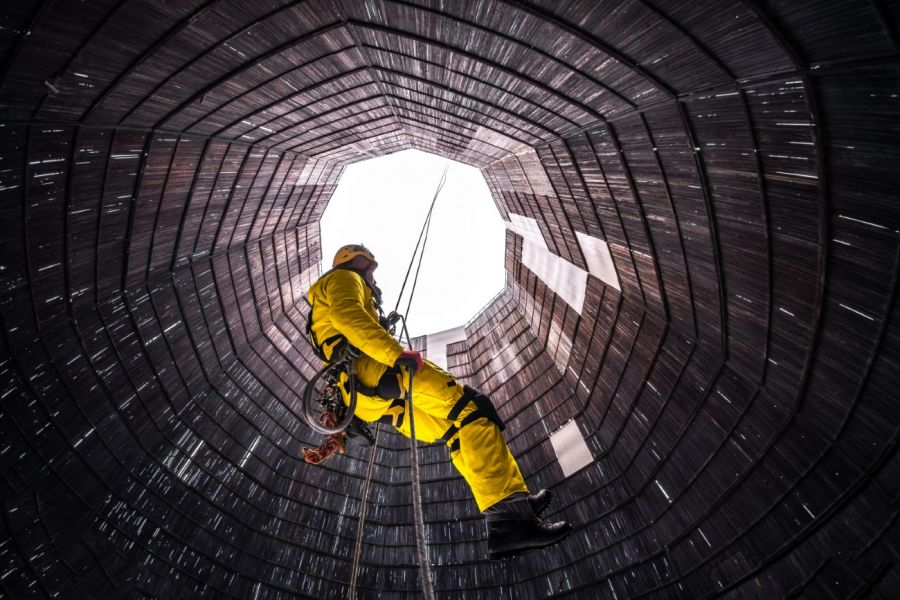Transformation that feels just right

We sat down for a conversation with Wojciech Pietkiewicz, Branch Manager at Daikin Europe Business Support, to discuss the complexity of processes delivered from their center, challenges lying ahead, and development plans for Daikin’s Warsaw branch.
FOCUS ON Business: Daikin Europe Business Support (DEBS) center is located in Warsaw's Mokotów district. When did it open and how many people do you currently have on board?
Wojciech Pietkiewicz, Daikin Europe Business Support: I think that we are still relatively young and in the process of writing our own story. Beginnings were genuinely humble as we started with 11 people in 2018 and grew to 20 people by the year’s end. Our current headcount stands at just over 90 people.
We occupy an entire floor in a small office complex located in the vicinity of the Chopin Airport. It’s worth pointing out that we wanted our office to match our ambition – so we modernized our spaced and doubled its size just last year. It’s safe to say that we have got great resources and hunger for further growth.
What processes do you currently de liver from your Warsaw center and how did the scope evolve over the past few years?
From the management point of view, the variety of processes and their sheer number are among the biggest challenges we are facing. It all started with Marketing Masterdata, Material Masterdata, Customs Support, Order Management, and Claims Support. However, a little disclaimer – I personally have not been at DEBS from the very beginning of the project, so the above list may not be complete.
Our beginnings are not your usual SSC story. We have not transferred entire teams to Warsaw, but rather focused on organic development and ensuring continuous business support while eliminating unnecessary risk. As time went on, we kept growing in terms of the number of delivered processes as well as teams’ sizes. Now, we boast entire departments dealing with processes as diverse as HR Support, Business Analytics, and Project Management. Local teams consist of 3 to 6 people, which enables continuous and uninterrupted process delivery. We also employ several specialists working with teams abroad.
I would like to reiterate that process diversity can pose a challenge, particularly from the standpoint of effective management. However, one obvious advantage for our people is the opportunity to change their career path, as well getting to know broader perspective of the of the mechanisms operating in Daikin globally.
What geographies do you cover? Are your activities limited to Europe or perhaps you cover other continents as well? Which countries do you work most often with?
We mainly focus on Europe. What’s really interesting and worth highlighting is the wide array of partners we work with – it includes internal stakeholders, suppliers, and direct customer service. In terms of countries we work closest with, the answer has got to be Belgium. This is where our parent company is located and our cooperation is genuinely close. Majority of procedures, internal and external policies, as well as corporate culture all stem from our Belgian parent company – we certainly identify with them to the greatest extent.
Does the highly international angle of your work necessitate employing people who speak foreign languages? If so, what languages are the most popular at your Warsaw center?
English is the lingua franca at DEBS, and a language we actually require – it covers all our communication needs in terms of operational and process work. An example to illustrate the importance of English is that I prepare all my presentations exclusively in this language, regardless of whether or not I deliver them in English. Additionally, we also support our people who wish to study other foreign languages, even though these are not required in their everyday work. This is done through centralized online courses.
The GBS/ SSC sector is subject to constant change and evolution. What are DEBS plans for the future?
I believe that the challenges we face affect majority of SSC type operations. Technology is not only limiting the scope of transactional work – typically done by people – but actually taking over that type of work entirely. That is why we invest in upgrading competences and improving specializations, which are the starting point for automation or support of other company departments.
It is difficult to pinpoint a single vector of change. Particular departments have their particular needs and it’s impossible to compare financial analytics with HR or material flow planning. This is where the process diversity I mentioned before comes into play. We have looked into historical data and keep analyzing ongoing tasks in great detail which, put together, enables us to conclude that the share of transactional work we do is decreasing. Therefore, I believe that the plan is to embrace the changes taking place and engage in a conscious and structured transformation relying on a meticulous assessment of available resources and competences.
What is your approach to the use of AI and, among others, the process of continuous process improvement?
Let me start with the latter part of your question. Process improvement is part of our DNA. Daikin hails from Japan, where the KAIZEN philosophy or the concept of GENBA come from. These are embedded in our corporate culture and everyday work. What fascinated me and immediately drew me to the company after I joined was that the KAIZEN and GENBA philosophies were referred to in management board communication.
Regarding artificial intelligence – DEBS is at a point where AI is a nice to have, not more than that. One thing we need to keep front and center is that at DEBS we are a relatively small part of a global corporation, thus we must be very careful when implementing new technologies or solutions that may affect the global brand. Any significant process change must be properly thought-through and managed as it often involves changing a number of related procedures. This, in turn, affects applicable standards and may bring about regulatory and legal effects.
Another thing is that Daikin uses JSOX, which is a set of Japanese standards for reporting systems that regulate internal control. This may prove to be an additional challenge in the context of using modern technologies in processes we deliver.
Let’s wrap things up by focusing on your workforce. What competencies do you look for, first and foremost, in future DEBS employees?
We pay a lot of attention to personality; however, this does not mean we neglect other aspects. A large variety of delivered processes means we cannot stay static. Applying the same criteria to everyone would make no sense.
Each prospective DEBS employee is required to undergo a set of analytical and personality tests – not a standard practice at other centers. On the one hand, it is time-consuming for both parties involved and some potential employees may see this excercise as pretty challenging; however, most of us realize just how crucial it is to properly recruit and thus match natural attributes and character traits to future tasks. That’s why we are very focused on the entire recruitment process and make every effort to ensure effective onboarding.
All the best for all your future endeavours! Thank you for your time.
This article comes from magazine:
FOCUS ON Business #15 March-April (2/2024)
 Check the issue
Check the issue







